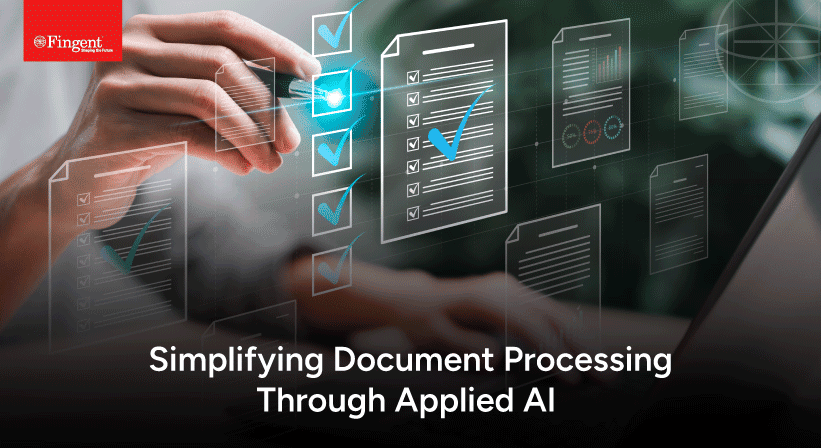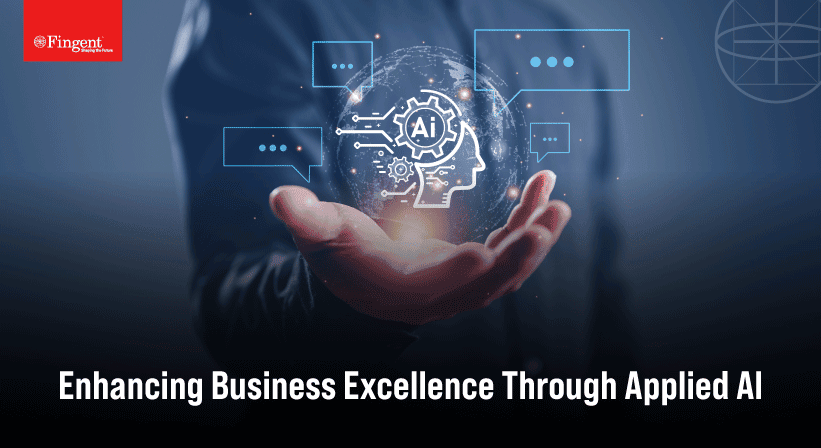Exploring the Power of AI In Supply Chain
Artificial Intelligence (AI) evolved from a concept of science fiction to a transformative force that permeates our daily lives. From autonomous vehicles to voice assistants, AI has already made significant inroads in various sectors.
However, one area that stands to gain immensely from AI’s potential is the supply chain. As the backbone of global trade, the supply chain encompasses complex networks and intricate logistics. It is an ecosystem where efficiency, accuracy, and agility can make or break success.
With its vast array of applications, AI has the potential to streamline operations, enhance decision-making, and unlock untapped opportunities. In this journey through AI’s rising capabilities, we will delve into real-world use cases that demonstrate how AI is revolutionizing the supply chain. Furthermore, we will also explore the specific benefits that AI brings to the supply chain domain.
Role Of AI Optimizing the Supply Chain
Every business owner dreams of a supply chain that is finely tuned, seamlessly efficient, and adaptive to every twist and turn of the market. A business where warehouses run like clockwork, shipments arrive precisely on time, and customer demands are anticipated with uncanny accuracy is not a far-fetched dream; it’s a reality being shaped by the game-changing role of Artificial Intelligence (AI) in optimizing supply chain operations.
At the heart of AI’s transformative influence are three key components that work in harmony to revolutionize the supply chain landscape. Let’s uncover their captivating role in reshaping the future of supply chains.
- Machine Learning and Predictive Analytics: Machine learning and predictive analytics in the supply chain are like having a trusted, experienced mentor by your side, whispering valuable insights and guidance into your ear. Machine learning algorithms analyze vast amounts of historical data to uncover patterns, trends, and potential pitfalls.
- Natural Language Processing and Chatbots: Natural Language Processing (NLP) allows you to simply ask a question about your supply chain and receive instant, accurate answers. With a chatbot available 24/7, customers can get instant responses, while supply chain teams can focus on strategic decision-making.
- Robotics and Automation: Robots, equipped with advanced sensors and AI algorithms, can perform repetitive tasks with unmatched precision and speed. From inventory management to order fulfillment, these tireless machines streamline operations, reduce errors, and enhance efficiency.
How AI Solves Supply Chain Challenges
The world of supply chain management is like a complex maze with numerous challenges at every turn. Thankfully, AI emerges as the trusty guide, equipped with the tools to solve some of the most daunting hurdles. Here are some for your reference:
1. Demand Forecasting and Inventory Optimization: This AI-powered assistant acts as your supply chain ‘savant,’ it understands your historical consumption patterns, market trends, and even factors like seasonality or promotional events.
2. Supplier Selection and Relationship Management: Choosing the right suppliers and maintaining strong relationships is like finding the perfect dance partner. AI steps in as a knowledgeable matchmaker. By analyzing vast amounts of supplier data, performance metrics, AI algorithms can assess and rank potential suppliers based on criteria such as reliability, quality, and cost.
3. Warehouse and Inventory Management: AI acts as a vigilant warehouse manager, optimizing layout, guiding picking and packing processes, and even predicting optimal storage locations. With AI-powered systems, warehouses can maximize space utilization, minimize errors, and accelerate order fulfillment, resulting in streamlined operations and satisfied customers.
4. Transportation and Logistics Optimization: AI takes on the role of coordinator who has a bird’s-eye view of the entire transportation network, utilizing algorithms to analyze real-time data on factors like traffic, weather conditions, and delivery constraints. By optimizing routes, load planning, and vehicle assignments, AI enables efficient transportation management.
5. Quality Control and Defect Detection: Think of a diligent quality inspector who never misses a flaw in a product. AI becomes this meticulous inspector, utilizing computer vision and machine learning algorithms to analyze visual data and detect defects with remarkable accuracy.
6. Risk Management and Supply Chain Resilience: AI plays this vital role just like a risk management expert. It analyzes a wide range of data sources to identify potential risks and vulnerabilities, ensuring supply chain resilience in the face of uncertainties.
7. Customer Service and Satisfaction Enhancement: AI takes on the role of a customer service representative who can swiftly address customer inquiries, provide accurate information, and resolve issues with ease. AI-powered customer service tools offer instant responses, personalized recommendations, and seamless assistance, enhancing customer satisfaction and loyalty.
Watch: Artificial Intelligence – how to navigate AI if you are not a tech company.
Remarkable Real-world examples of AI in the Supply Chain
AI transforms supply chain management like never before. Don’t take our word for it. See it in action as implemented by big players in the industry:
Use Case 1: Precision Prediction by Amazon
Problem: Traditional demand forecasting and inventory management methods often struggle to predict customer demands and optimize inventory levels in real-time accurately.
Solution: To address this challenge, Amazon has harnessed the power of AI algorithms to revolutionize demand forecasting and inventory management. By analyzing vast amounts of customer data, historical sales patterns, and even external factors like weather forecasts, AI algorithms can accurately predict demand with remarkable precision.
This AI-driven approach allows Amazon to optimize inventory levels, ensuring that popular products are readily available while minimizing excess inventory and reducing the risk of stockouts. By aligning supply with demand, Amazon is able to enhance customer satisfaction and maintain a competitive edge in the dynamic e-commerce landscape.
Use Case 2: Substitution Solution by Walmart
Problem: In online grocery shopping, customers often encounter situations where certain items they ordered are out of stock. This can lead to dissatisfaction and inconvenience, as customers may have to manually search for suitable substitutes or go without the desired product.
Solution: To address this issue, Walmart has implemented an AI-driven product substitution system. Using advanced algorithms, the system analyzes product attributes, customer preferences, and available inventory data to suggest suitable substitutions for out-of-stock items.
When an ordered item is unavailable, the AI system automatically identifies the best possible substitute based on factors such as brand, size, price, and customer feedback. It takes into account the customer’s past purchase history and preferences to make personalized recommendations. The system provides clear and transparent information to customers, ensuring they are aware of the substitution and have the option to accept or reject it.
Use Case 3: Real-Time Routing by UPS
Problem: Traditional route planning methods often struggle to optimize delivery routes efficiently, resulting in inefficient use of time, resources, and fuel.
Solution: UPS leverages AI algorithms for route optimization, enabling them to analyze real-time data on factors such as traffic patterns, delivery constraints, and even weather conditions. By considering these variables, UPS can generate optimal delivery routes that minimize distances, reduce fuel consumption, and optimize delivery time.
Through the implementation of AI in its logistics operations, UPS achieves significant cost savings, improves delivery efficiency, and reduces its carbon footprint. This AI-driven approach allows UPS to stay ahead of the competition and provide exceptional service to its customers.
Use Case 4: Valuable Vending by Coco-Cola
Problem: Traditional vending machines often lack the ability to gather real-time data on customer behavior and gauge the effectiveness of different brands and product offerings.
Solution: To overcome these limitations, Coca-Cola has implemented AI-enabled next-gen vending machines. These machines are equipped with advanced sensors, cameras, and AI algorithms that gather real-time data on customer behavior, purchasing patterns, and brand preferences.
With this newfound understanding, Coca-Cola can optimize product placements, tailor offerings to specific locations, and develop targeted marketing campaigns. Furthermore, the AI-enabled vending machines also allow Coca-Cola to remotely monitor inventory levels, predict demand patterns, and optimize restocking schedules. This ensures that the vending machines are always well-stocked with popular products, reducing the likelihood of stockouts and maximizing sales opportunities.
Use Case 5: Wonder Warehouses by Alibaba
Problem: Traditional warehouse management practices often face challenges related to inefficient storage utilization, suboptimal picking processes, and delays in order fulfillment.
Solution: Alibaba has embraced AI technology to develop smart warehouses that leverage automation, robotics, and AI algorithms. These AI-enabled warehouses optimize storage utilization, streamline picking and packing processes, and enable efficient order fulfillment.
Through the integration of AI, Alibaba achieves faster and more accurate inventory management, enhances warehouse operations, and improves overall efficiency in its supply chain. This innovative use of AI allows Alibaba to meet the demands of the e-commerce market and deliver exceptional service to its customers.
Checkout out our Infographic: Successful Logistics and Warehouse Management Practices.
Solid Supply Chain Solution with AI by Fingent
Advancements in AI technologies continue to shape the supply chain landscape, with machine learning algorithms becoming more sophisticated, natural language processing capabilities evolving, and robotics and automation becoming increasingly intelligent and adaptable. These advancements enable businesses to make data-driven decisions, automate repetitive tasks, and optimize operations like never before.
At Fingent, we understand the immense potential of AI in supply chain management and are committed to helping businesses harness its power. Our expertise lies in developing innovative AI solutions tailored to specific industry needs, integrating AI with emerging technologies, and driving digital transformation in the supply chain.
Whether it’s building intelligent forecasting models, implementing AI-powered automation, or leveraging AI-driven analytics, Fingent is dedicated to empowering organizations to thrive in the AI-driven supply chain landscape.
Businesses that embrace its potential will gain a significant competitive advantage. By leveraging AI technologies, integrating with emerging technologies, and partnering with experienced custom software solution providers like Fingent, organizations can unlock new frontiers of efficiency, innovation, and success in the dynamic world of supply chain management.
Reach out to us to get the best supply solution for your business.
Stay up to date on what's new

Recommended Posts

08 May 2024 Financial Services B2B
AI Shaping the Future of Financial Services: Use Cases & Applications
As Dan Schulman, the CEO of PayPal once said, “We're not trying to reinvent the wheel; we're trying to perfect it.” Achieving perfection is no easy process. It is not……

24 Apr 2024 B2B
A Leader’s Blueprint for AI Success
"Leaders, embrace AI! Make it your superpower!" - Robert Barber, Leadership Development Trainer and Executive Coach. How Are Businesses Using AI? The verdict is crystal clear—leaders today must embrace AI to……

18 Apr 2024 B2B
Applied AI For Document Processing
"It's becoming increasingly clear that AI is the future, and almost everything else is a sideshow." - World-renowned computer scientist Geoff Hinton AI has taken over almost every aspect of……

21 Feb 2024 B2B
Stepping The AI Revolution with Applied AI
“I am telling you, the world’s first ‘trillionaires’ are going to come from somebody who masters AI and all its derivatives and applies it in ways we never thought of.”……
Featured Blogs
Stay up to date on
what's new
















 US
US Insurance
Insurance









































